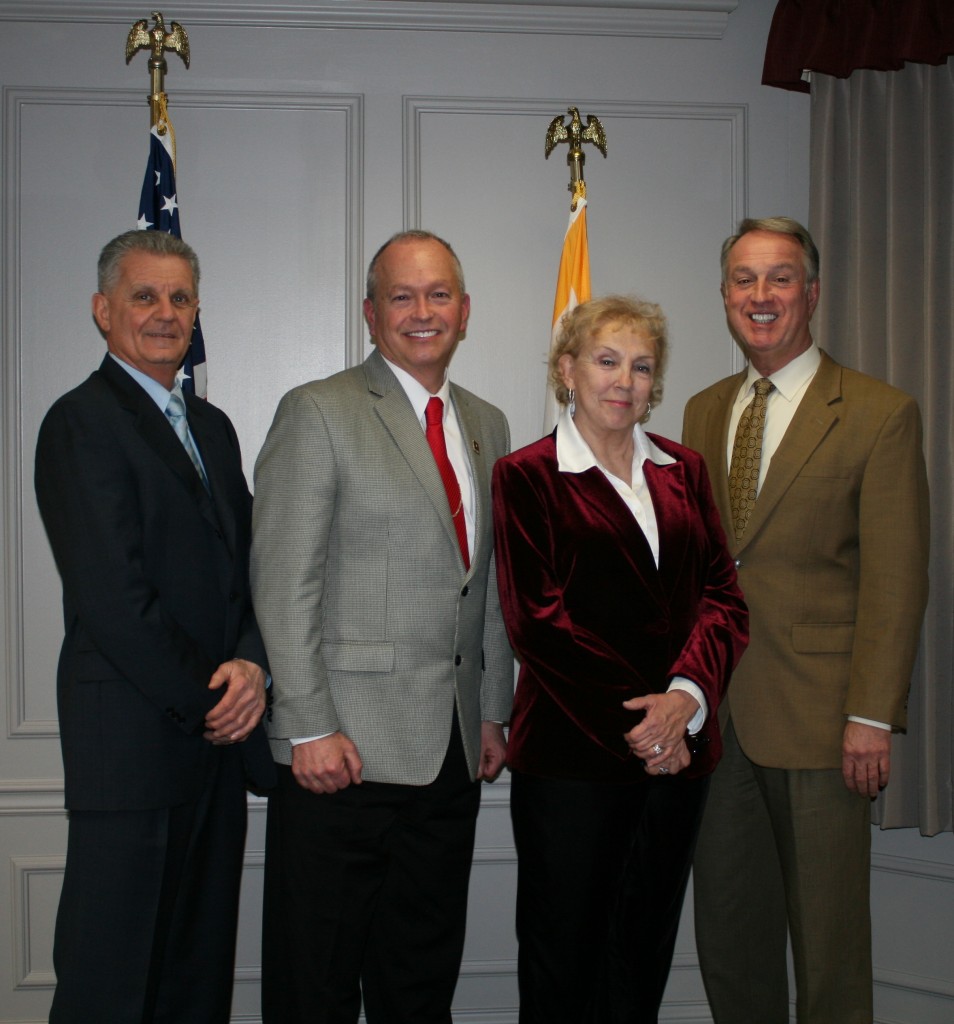By Mark Hansel
NKyTribune managing editor
Boone County leaders say the budget approved by the Fiscal Court June 21 keeps the county on a path to manage growth and improve its long-term outlook, without increasing taxes.

“I am very excited about the Fiscal Year 2017 County Budget,” Boone County Judge/Executive Gary Moore said. “Revenues are projected to be higher and expenses lower than the FY 16 budget. Tax rates and fees are not being increased and there are many exciting projects that will help us manage the population and job growth that we are experiencing.”
Boone County Administrator Jeff Earlywine said the Fiscal Court has demonstrated good leadership on budget decisions in recent years.
“Looking at it from the 10,000-square-foot level, we’ve had two or three pretty good budget years in succession,” Earlywine said. “The staff has recommended some things, but the court has embraced them. They’ve used it as an opportunity to do a few fundamental things that will really serve us well.”
Earlywine said the Fiscal Court has taken advantage of opportunities to aggressively manage county debt and accelerate debt repayment, which positions it well, going forward.
“They’ve used it as an opportunity to kind of aggressively manage our debt and accelerate debt repayment,” Earlywine said. “In the last 10 years we’ve had some debt that has just naturally gone away and we’ve refunded some of our debt with the rates being so good. Now, for the second year in a row, we are retiring some debt early and we haven’t incurred any new debt.”
Ten years ago, Boone County’s outstanding general obligation debt was almost right at $50 million. With the accelerated repayment and retirement of debt, the number will be slightly less than $11 million next year and the impact on the budget is significant.
The county’s principal and interest payments were $6.1 million 10 years ago. In FY 2017, that number will be $1.9 million.
Earlywine said there are people who might scratch their head and wonder why the county is retiring debt early, when there is still cheap money on the street.
“We still can’t invest for what we are paying for that cheap money, so it’s still costing us,” Earlywine said. “We have this window of opportunity, when you have a couple of good budget years and there is some discretionary money there. We all know that it can go away in a hurry, so having the discipline to do this, you can see how it benefits you over a ten-year period.”

The county is also beginning to see the benefits of the effort to strengthen its fund balance, which began about six years ago. At that time, the Fiscal Court adopted a specific emergency reserve fund policy. The goal was to have an emergency reserve fund that is equivalent to 25 percent of its annual recurring revenue.
“A lot of city and counties, when the meltdown occurred in 2009 and 2010, really dipped into that and we were no different. Our reserves really got low,” Earlywine said. “For next year, that policy would require us to have $13.9 million in reserves and we’re going to have almost $17 million. Instead of being at 25 percent we’re going to be at about 30 percent, so, we’ve met and exceeded that policy and it really strengthens our balance sheet.”
Having a strong balance sheet and eliminating debt has allowed the county to adopt a pay-as-you-go mentality for capital projects.
“We are really pleased with the court’s support for our plan,” Earlywine said. “We’ve got a lot of projects in the pipeline and we’ve been able to, not in every case, but in most cases, prefund those projects and if it’s a grant, we’ve met our 20 or 25 percent match. Globally, those are really important characteristics of using the budget as more than just an operating tool.”
Capital improvements include a number of street and sidewalk projects around the county and there is $1.25 million in the budget to undertake the renovation of the Historic Courthouse. There is also $350,000 allotted in the budget to pay for half of an interchange justification study in partnership with the Kentucky Transportation Cabinet on Interstate 275 at Graves Road in Hebron.
Residential, commercial and industrial growth in Hebron has overburdened the existing exit, especially during the Christmas Holiday season. Distribution operations, such as Amazon, hire hundreds of seasonal workers and the existing KY 237 (North Bend Road) exit cannot accommodate the traffic volume. A spurt in residential growth is also anticipated if a planned project to increase sewer capacity in Hebron comes to fruition.
County leaders are also confident they recognize what is most important to residents and business owners and Earlywine said budget decisions are made with the focus on a few guiding precepts.
“Everything we have talked about occurs within an environment where the Fiscal Court has said they want us to maintain a high level of services and quality programs for our taxpayers,” Earlywine said. “Secondly, we don’t want to raise or increase any tax or fee and this budget does that and it’s been several years since we have had an increase.”
A primary reason for that is that revenues for this year are increasing by 5.2 percent in the general fund. A vast majority of that is attributable to strong payroll receipts.
“If you are a single-family homeowner in Boone County, you continue to pay less as a percentage of the overall operating budget than you did four or five years ago because the revenue is coming in from business growth, expansion and payroll increase,” Earlywine said.
No budget is perfect and Earlywine said the county faces some hurdles.
“One of the challenges for us is to have enough discretionary money to continue to invest to maintain our infrastructure,” Earlywine said. “In a perfect world we would still be investing more in maintaining our infrastructure, our facilities and even our fleet.”
In addition, 911 and wireless fees continue to pay a reduced amount of the overall cost of delivering dispatching and communication services. Some counties have gone to a different funding model and Earlywine anticipates Boone County will have to do that as well.
“The industry exploded, but the enabling legislation wasn’t there to capture a fair share of the monthly fee to pay for (cell phone) use of the 911 system, which in most systems including ours, is in the (mid 80 percent rate),” Earlywine said. “They are paying 70 cents a month, but in Boone County, if you are a landline user you are paying $2.76 a month. It’s patently unfair to landline users and it’s growing increasingly inadequate.”
There are also a couple of important projects that have not been prefunded, included a new 800 megahertz communication system. The county has set aside $1 million but that’s only a small portion of the needed cost and a funding mechanism has not been identified.
The county is also still working with Sanitation District No. 1 (SD1) on the aforementioned Hebron sewer capacity issue.
“It remains to be seen if we will be called upon to be a partner in funding a portion of that solution,” Earlywine said.
The county has already put up $275,000 to help finance a study that will determine what an upgrade to meet the projected increase in capacity will cost. It looks as if the pricetag for the project will be about $9 million and SD1 has set aside about $3 million in next year’s budget
While capacity is SD1’s responsibility, Earlywine said the county is willing to discuss being an equity partner in a good faith agreement to get the project done.
“We can accept that we don’t have the money, or we can try to think outside the box a little bit and find a way we can we incentivize or creatively come up with a way to keep this moving forward,” Earlywine said. “At the end of the day, if we don’t look after our own interests, we can’t expect anybody to do it for us.”
Contact Mark Hansel at mark.hansel@nkytrib.com


















A well written and very informative article. The Tribune beats the other local newspapers hands down.
Thank you for the encouragement, Mr. Anderson.